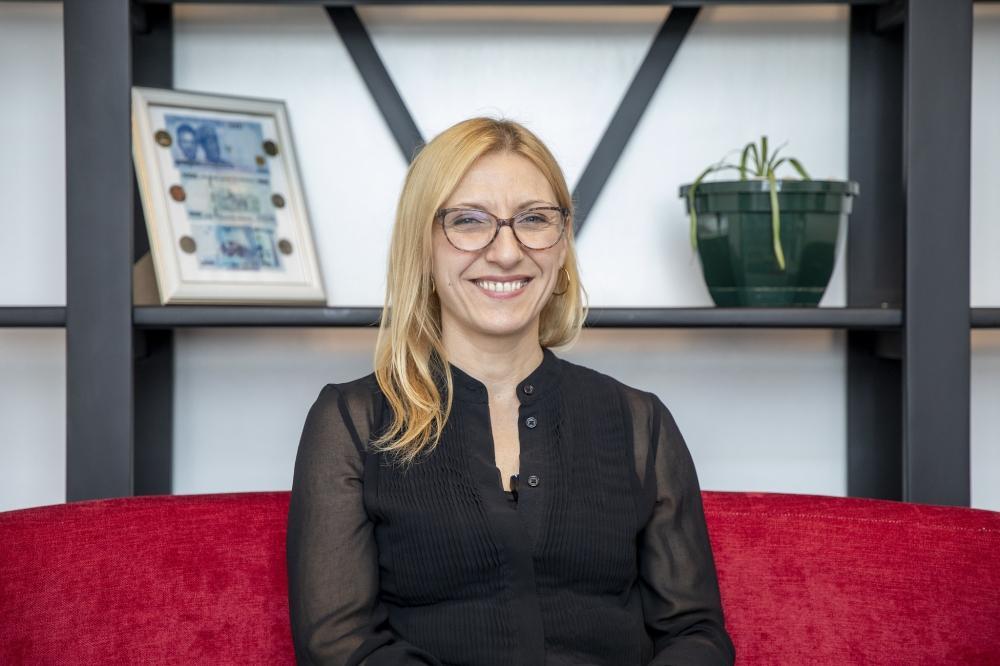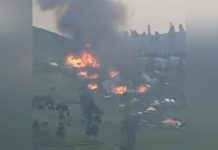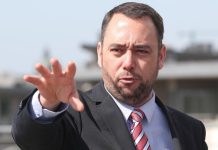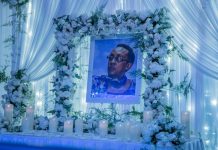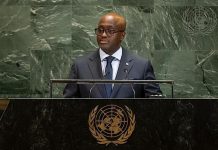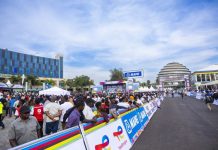Africa-Press – Rwanda. The narratives around the conflict in eastern DR Congo have been distorted by biased reporting, downplaying violence against Congolese Tutsi communities, according to conflict discourse researcher and language analyst Bojana Coulibaly.
Coulibaly, who was born in Bosnia-Herzegovina, lived through the 1992 war that followed the breakup of Yugoslavia. As a teenager, she and her family fled through refugee camps in Austria and Italy before settling in France as political refugees. There, she completed her secondary education and went on to earn a PhD in African Studies with a specialisation in stylistic and discourse analysis.
Originally focused on Anglophone Africa, Coulibaly’s academic research later expanded to include Francophone regions, with a particular interest in how post-colonial African societies reconstruct their identities.
The 1994 Genocide Against the Tutsi has long drawn her scholarly attention, which she described in an exclusive interview with The New Times as “a climax of the contact between colonial Europe and Africa and the consequences of the colonial presence on the continent.” Her interest in the Great Lakes region deepened between 2021 and 2022, when the M23 rebellion resurfaced in eastern DR Congo.
“I was receiving messages of extreme hate speech, talking about the Congolese Tutsi, saying that they’re Rwandans, that they come from outside, that they’re the enemy and traitors,” she said.
Coulibaly draws parallels between this hate speech and the “Hamitic ideology” that contributed to the 1994 Genocide against the Tutsi. “We find echoes of the Hamitic myth, which portrays the Tutsi as colonizers and foreigners. I observed similar elements in eastern DR Congo, especially on social media.”
Despite mounting evidence of atrocities, including lynchings and people being burned alive, Coulibaly said, “Nothing was reported on it. The UN wasn’t reporting it, nor were civil society groups or human rights organisations. The only one who took some form of action was Alice Nderitu, the former UN Under-Secretary-General for Genocide Prevention.”
She criticised the UN Group of Experts’ reports for being shallow and biased. “They always assess violence as coming from one side, but their conclusions don’t match the realities on the ground,” said Coulibaly.
She added that the M23 rebel group was targeted by various reports despite limited information and a lack of on-the-ground investigations by researchers or institutions from the United States, France and Europe.
“When you spend 20 years studying texts, it’s easy to spot bias,” she said of her work. “Some scholars considered experts on the region showed clear subjectivity while never explaining why certain crimes were happening. Their reporting lacked perspective and was clearly anti-Rwanda, pro-Kinshasa.”
She explained that the Congolese government and some scholars chose to accuse M23 of starting the war by taking up arms in November 2021.
“But when I checked archives and interviewed M23 members, they told me they had spent 14 months in dialogue with the Congolese government before being attacked by the Congolese army. M23 only retaliated in March 2022,” she said.
Coulibaly also questioned why M23 was excluded from peace negotiations despite being the only armed group with clearly stated political grievances. “At the time, there were over 200 armed groups in the DR Congo. Yet the conflict was branded as ‘the M23 war,’ which unfairly placed all the blame on one group.”
She added, “M23 was also the only armed group excluded from the Nairobi peace process, even though others with no political platform were invited. Kinshasa later branded M23 a terrorist group but there’s no evidence of them targeting civilians, unlike the ADF (Ugandan terrorist group), which clearly conducts terrorist attacks.”
In 2023, she traveled to meet M23 leaders in North Kivu, Congolese refugees in Rwanda and internally displaced people in DR Congo to better understand the full picture.
In December and January, she interviewed M23 political leader Bertrand Bisimwa, asking about the group’s grievances, alleged ties with ADF reported in a UN Group of Experts midterm report, and the refusal by Kinshasa to enter dialogue.
She noted that the current discourse mirrors decades of exclusionary ideology. “Speaking with people in Masisi and Rutshuru, it became clear this isn’t just about recent events. The roots of this conflict go back over 30 years, even before the 1994 Genocide against the Tutsi. The ideology that dehumanises Congolese Tutsi is deeply embedded.”
Coulibaly also criticised some French media outlets, saying, “French media such as France 24, TV5 Monde, RFI and at some level Jeune Afrique, tend to actually espouse this narrative, either they’re just repeating what the other said without any proper investigation, or they are forced to follow a certain discourse.”
She emphasised the need for political education and legal action to combat hate speech and divisionism. “There needs to be a proper education against divisionism, call out hate speech, officially criminalise it. That has to happen everywhere, not just in Rwanda, but also in Burundi and in Congo.”
“We need to refocus on research ethics, promote truth rather than these narratives that are just fueling conflict,” she added.
For More News And Analysis About Rwanda Follow Africa-Press

